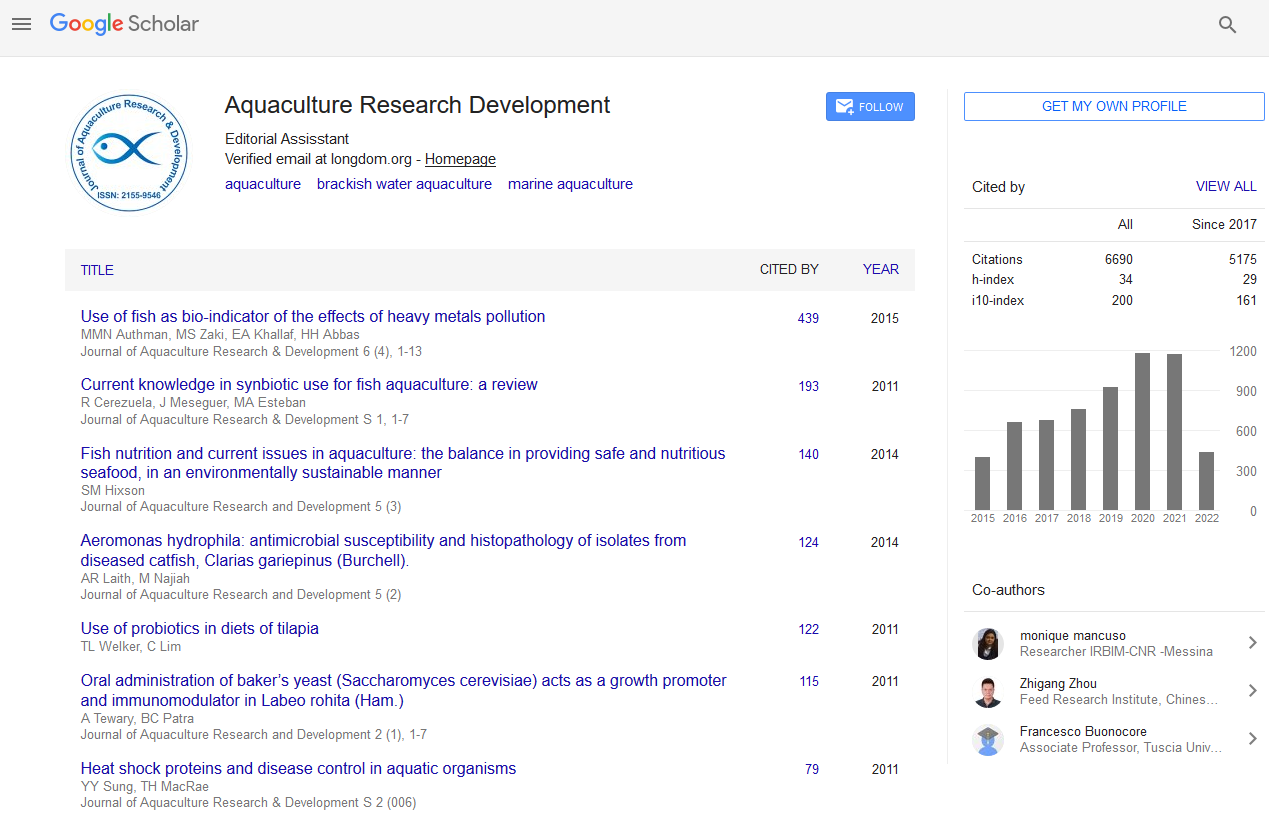PMC/PubMed Indexed Articles
Indexed In
- Online Access to Research in the Environment (OARE)
- Open J Gate
- Genamics JournalSeek
- JournalTOCs
- Scimago
- Ulrich's Periodicals Directory
- Access to Global Online Research in Agriculture (AGORA)
- Electronic Journals Library
- Centre for Agriculture and Biosciences International (CABI)
- RefSeek
- Directory of Research Journal Indexing (DRJI)
- Hamdard University
- EBSCO A-Z
- OCLC- WorldCat
- Scholarsteer
- SWB online catalog
- Virtual Library of Biology (vifabio)
- Publons
- MIAR
- University Grants Commission
- Euro Pub
- Google Scholar
Useful Links
Share This Page
Journal Flyer

Open Access Journals
- Agri and Aquaculture
- Biochemistry
- Bioinformatics & Systems Biology
- Business & Management
- Chemistry
- Clinical Sciences
- Engineering
- Food & Nutrition
- General Science
- Genetics & Molecular Biology
- Immunology & Microbiology
- Medical Sciences
- Neuroscience & Psychology
- Nursing & Health Care
- Pharmaceutical Sciences
Australian aquaculture governance
International Conference on Aquaculture & Fisheries
July 20-22, 2015 Brisbane, Australia
Marcus Haward
ScientificTracks Abstracts-Workshop: J Aquac Res Development
Abstract:
Marine aquaculture is a major element of Australian fisheries production. The sector has undergone major development and change over the past two decades. Aquaculture operations in Australia include salmonids and other important market species of tuna, oysters, and prawns. A number of other species are also farmed. In 2011-12 the aquaculture of salmonid species (Atlantic salmon (Salmo salar) and Brown trout (Salmo trutta) was Australia?s largest catch by production (43, 989 tonnes) and by value ($513 million). Given Australia?s federal division of powers a vast majority of aquaculture operations located with state waters and governed by state and local government legislation and by-laws. The Australian (national) government is also involved through sustainability assessments, quarantine and bio-security, food quality and safety, and environmental management. Community engagement is centred on an increasing focus on social acceptability/social license relating to aquaculture operations. A further element is the development of industry based codes of practice and moves to seek external third party accreditation of their operations. This paper examines aquaculture governance in Australia, highlighting the importance of the interaction between government, industry and community.
Biography :
Marcus Haward is a political scientist specialising in oceans and Antarctic governance and marine resources management at the Institute for Marine and Antarctic Studies (IMAS), University of Tasmania. He has over 150 research publications, and his books include Oceans Governance in the Twenty-first Century: Managing the Blue Planet (with Joanna Vince) Edward Elgar 2008; and Global Commodity Governance: State Responses to Sustainable Forest and Fisheries Certification (with Fred Gale) Palgrave Macmillan, 2011. He is editor of the Australian Journal of Maritime and Oceans Affairs published by Taylor & Francis.


